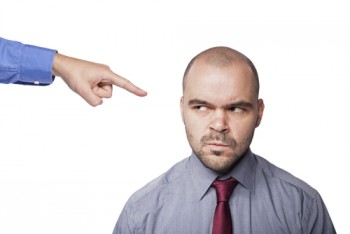May a lawyer call another lawyer unethical? Spate of inquiries spurs ethics opinion

Image from Shutterstock.
Is it unethical for a lawyer to label another lawyer unethical? The Iowa State Bar Association has received so many inquiries about the issue that its Ethics and Practice Guidelines Committee addressed the topic.
“The purpose of this ‘back to basics’ opinion,” the committee said, “is to give the bar a closer focus on the line and the ability to discern real unethical behavior from that which merely reflects professional differences.” The ABA/BNA Lawyers’ Manual on Professional Conduct has this report.
According to the ethics opinion, issued Oct. 24, allegations of unethical conduct are serious. A lawyer who knows another lawyer has violated the ethics rules is required to inform the state’s lawyer disciplinary board. “The rule is mandatory, not discretionary,” the opinion says.
Allegations that another lawyer has engaged in dishonesty, fraud, deceit, or misrepresentation are serious, because such conduct is a violation of the ethics rules, according to the opinion. “Consequently these allegations should never be made to obtain a tactical advantage or to coerce action,” the opinion says.
Some lawyers try to avoid the duty to report by warning opposing counsel of the “potential” for an ethics violation. When the warning is issued as a threat, or to influence the opposing counsel to act a certain way, the lawyer is violating Iowa Supreme Court rules calling for courtesy and discouraging uncivil, abrasive and abusive conduct, the opinion says.
The Iowa opinion points to a 1994 opinion by the ABA’s Standing Committee on Ethics and Professional Responsibility. It advised that a lawyer can’t threaten an ethics complaint as a bargaining point in a civil case when the alleged misconduct raises a substantial question about honesty, trustworthiness or fitness as a lawyer. In such circumstances, the ABA opinion said, the lawyer is ethically required to report such misconduct. The opinion also said such threats are improper if the alleged misconduct is unrelated to the civil claim; is not well-founded; or has the effect of embarrassing, delaying or burdening the opposing counsel.
According to the Lawyers’ Manual, the reporting duty in Iowa’s ethics rule is broader than the ABA model ethics rule, which limits the reporting duty to ethics violations that raise a serious question about the lawyer’s honesty, trustworthiness or fitness to practice.



